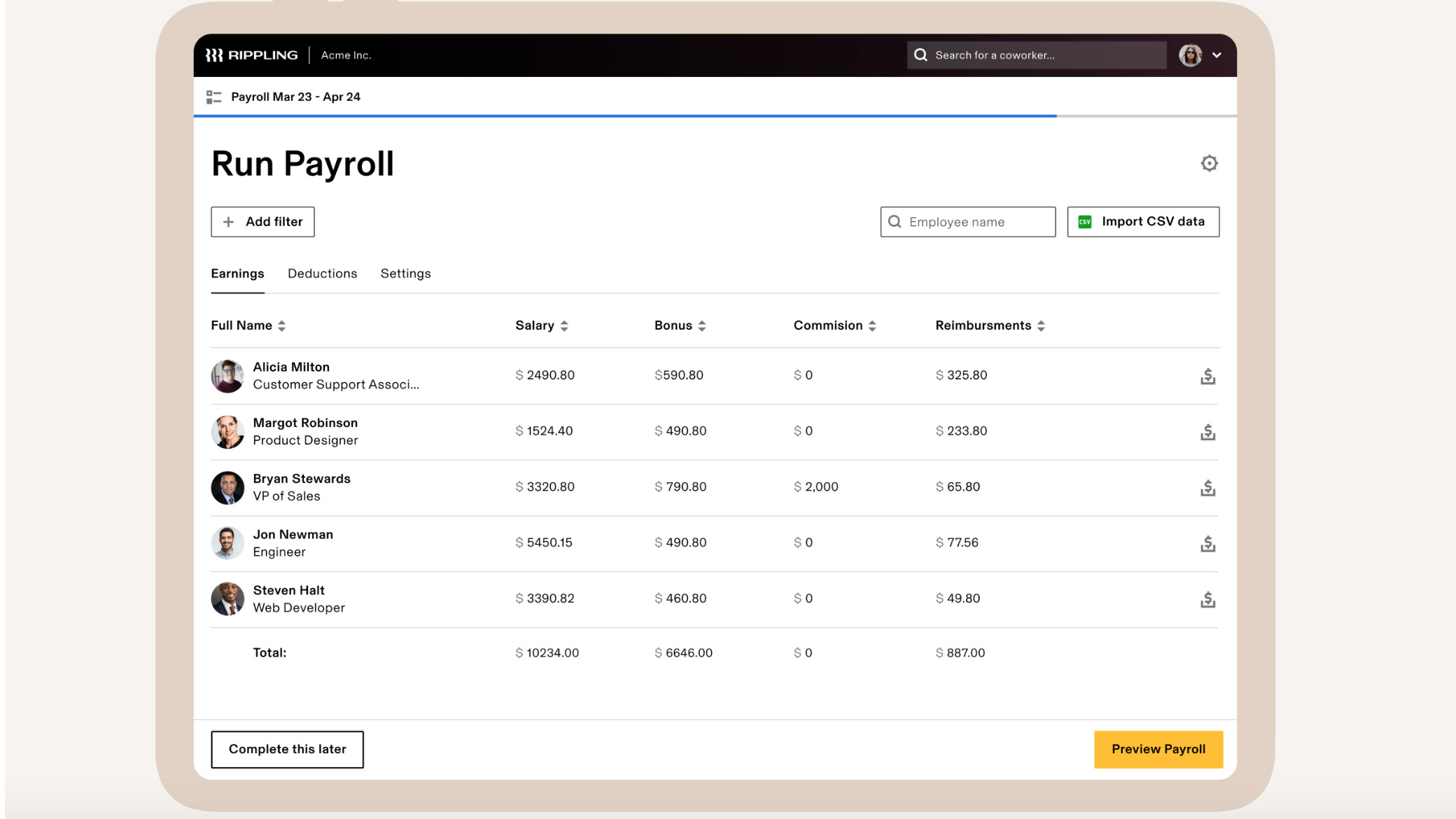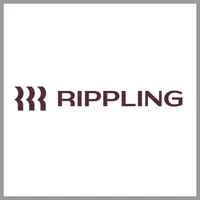Sponsored by Rippling
EOR vs PEO: what are the differences?
One of these is probably best for your organization

The modern globalized workforce offers businesses a wide range of options to address their talent management and HR needs.
Among the most widely adopted solutions are the Employer of Record (EOR) and the Professional Employer Organization (PEO), two established outsourcing models that help companies streamline operations, reduce administrative burdens, and remain compliant across diverse markets.
While both solutions deliver overlapping advantages, such as simplifying HR processes, enhancing compliance, and supporting workforce scalability, they serve distinct purposes and operate under different frameworks.
For companies pursuing sustainable growth, understanding these differences is essential to choosing the model that best aligns with their long-term business strategy, operational goals, and global expansion plans.
Claim your 3 free months of payroll now
For a limited time, Rippling is sweetening the deal with 3 months of payroll service completely free. Just smart software, built for small and medium-sized businesses, with a deal that lets you run payroll without spending a dime for your first three months. And free really means free - no credit card charges, no hidden fees, no surprise invoices down the road.
Techradar Pro Approved Sponsored Offer
What is an EOR?
The Employer of Record (EOR) model serves as a strategic business partner for organizations seeking to integrate international talent into their workforce.
Your business expansion depends on your ability to recruit worldwide professionals who bring fresh perspectives and specialized abilities to your organization. The EOR service takes over all legal responsibilities of international staff employment, so you can maintain your business operations.
Your business growth remains your priority because the best EOR companies handle essential tasks, including payroll management, benefits administration, local labor law compliance, and administrative work.

The EOR model enables businesses to bring international talent into their workforce without requiring them to establish new country operations.
The EOR model enables you to recruit top performers from any location because it eliminates geographical recruitment barriers. The partnership with an EOR provides your organization with access to a broader selection of candidates who will contribute unique perspectives to your team. The EOR service offers comprehensive legal and regulatory management, enabling you to build a global workforce with confidence.
EOR services manage various aspects of human resources, including payroll operations, benefits administration, and tax compliance across multiple international locations.
It is the organization’s responsibility to adhere to all local employment regulations and labor standards in each region. Additionally, the organization takes charge of creating employment contracts and handling all administrative HR tasks.
Furthermore, it provides support for visa sponsorship and the acquisition of work permits, ensuring a smooth process for employees relocating internationally.
Businesses select EOR services when they need to enter new international markets or test foreign territories, or want to employ staff without establishing a local subsidiary.
What is a PEO?
A Professional Employer Organization (PEO) provides comprehensive HR outsourcing solutions through a co-employment model, effectively sharing employer responsibilities between the business and the PEO.
The business maintains control over its core operational activities through this method, as it handles strategic decisions and daily operations, while utilizing the PEO for vital human resource management tasks.
The PEO undertakes a broad range of HR management tasks, including payroll processing, employee benefits administration, compliance with labor laws, risk management, recruitment, and training.
The PEO enables businesses to utilize their resources and expertise for HR process optimization, resulting in reduced administrative work and improved employee benefits that lead to increased productivity and job satisfaction.
The co-employment model fosters a collaborative work relationship that enables organizations to build positive workplaces while adhering to all necessary regulations. The partnership enables companies to focus on their expansion and core business operations while benefiting from expert HR services provided by the PEO.
Organizations that implement a PEO will gain strategic benefits that help them improve their workforce management and market competitiveness.

The best PEO companies play a crucial role in managing various aspects of employee-related services.
First and foremost, it takes care of payroll management and tax preparation, ensuring timely and accurate processing.
Additionally, the PEO oversees all facets of employee benefits administration, making it easier for businesses to offer competitive packages to their employees. The organization also provides essential support for HR compliance, helping businesses navigate regulations and maintain smooth employee relations.
Furthermore, the PEO manages workers' compensation benefits and implements risk protection programs to safeguard both employees and employers.
These types of services appeal to businesses that seek to streamline their HR management and obtain superior employee benefits and decreased administrative work.
A PEO service requires businesses to maintain a legal entity presence in the country where their employees work, since it does not function like an EOR.
Feature | EOR | PEO |
Legal role | Becomes the legal employer | Co-employment relationship |
Entity required | Not needed | Needed |
Geography | International and domestic | Primarily domestic |
Compliance liability | Handled fully by EOR | Shared responsibility |
Best for | Global expansion and remote hiring | HR outsourcing for the existing workforce |
Choosing between EOR and PEO
When deciding between an Employer of Record (EOR) and a Professional Employer Organization (PEO), the choice hinges on your specific business needs and growth strategy.
An EOR is particularly beneficial for companies looking to expand into new countries without the burden of establishing an entity. It's ideal for testing international markets quickly and cost-effectively, hiring remote workers across multiple jurisdictions, and mitigating compliance and legal risks when hiring abroad.
Conversely, a PEO is best suited for organizations that have already established a presence and require robust HR support.
This option works well for domestic companies experiencing rapid growth yet lacking the necessary HR infrastructure, employers seeking competitive benefits packages, and those looking to reduce administrative tasks while ensuring compliance.
Ultimately, your decision should align with your broader goals. If your strategy focuses on global expansion and hiring talent abroad without setting up new entities, an EOR will serve as the most effective solution.
On the other hand, if your emphasis is on domestic operations and you already have established entities, a PEO can help streamline HR processes and enhance access to employee benefits.
Additional factors to consider include budget, compliance risks, hiring timelines, and your long-term objectives.
Final words
In conclusion, both EORs and PEOs provide valuable support in managing HR responsibilities, but they cater to different operational needs.
An EOR functions as the legal employer for international hires, while a PEO employs a co-employment model to bolster HR efficiency and employee benefits in established organizations.
By aligning your choice with your company's specific goals, focusing on either global expansion or optimizing domestic HR operations, you can create a smoother and more compliant growth journey.
Sign up to the TechRadar Pro newsletter to get all the top news, opinion, features and guidance your business needs to succeed!
Bryan M. Wolfe is a staff writer at TechRadar, iMore, and wherever Future can use him. Though his passion is Apple-based products, he doesn't have a problem using Windows and Android. Bryan's a single father of a 15-year-old daughter and a puppy, Isabelle. Thanks for reading!

